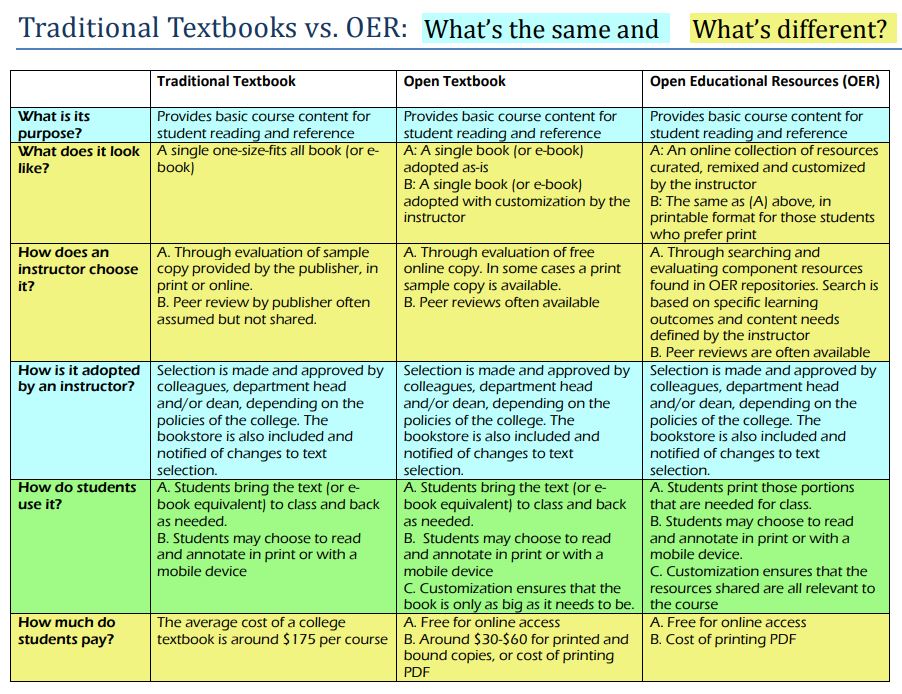Are you a student interested in affordable textbooks?
Check out OER for Students!
What are OER?
Open Educational Resources (OER) are teaching, learning, and research resources that reside in the public domain or have been released under an intellectual property license that permits their free use and re-purposing by others.
Source: The William and Flora Hewlett Foundation
Open Education Fact Sheet from SPARC
OER Mythbusting (Top 7 Common Misunderstandings) from SPARC
- OER can either exist in the public domain, or be licensed for reuse under a more lax intellectual property license, such as a Creative Commons license.
- OER can be revised, remixed, added upon, translated, and then shared again to meet different needs.
- OER can take many forms, such as: syllabi, lesson plans, videos, software, tests, teaching techniques, group activities, writing prompts, textbooks, learning modules, lecture slides, lab manuals, experiments, simulations, and course designs. There are no platform constraints. They can exist in a digital or print format.

Does OER use improve student learning?
Yes! Dozens of national, peer-reviewed studies have been conducted on OER use in higher education over the past five years. None of these studies showed results in which students who utilized OER performed worse than their peers who used traditional textbooks or course materials. In fact, all studies showed that students who had unlimited access to their course materials and were engaged in open pedagogy assignments performed better or the same as their peers with traditional course materials and more limited access.
For a complete list of every major study conducted on OER efficacy and/or teacher and student perceptions of such resources in actual practice, please see the Open Educational Group’s list of reviewed studies.
Why use OER?
Where have OER been implemented?
OER initiatives are gaining momentum all over the world. A few notable programs include:
- Achieving the Dream’s OER Initiative involves 38 community colleges in 13 states
- Tidewater Community College’s Z-Degree was the first zero-textbook-cost degree program in the US
- Maricopa Community Colleges’ “Maricopa Millions” program has saved students more than $10 million since 2013
- Lansing Community College has implemented OER in more than 25 courses
- The federal FY18 Omnibus bill includes $5 million in funding for an open textbook grant program
How can I find OER?
The good news is that OER are proliferating rapidly; the bad news is that currently, they are very distributed (no single, centralized repository exists). Recommended tools for finding OER are available here.
Support services for OER adoption are available to you on campus! If you have any questions, please contact the Hamra Library or the Center for Academic Innovation.
